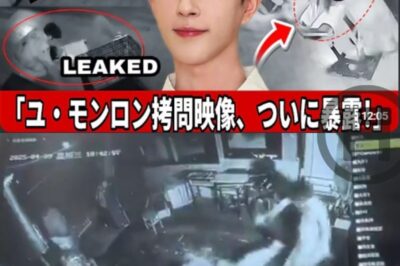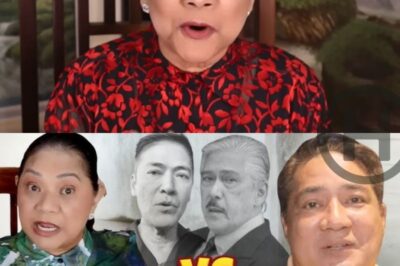
Writer Song Weiwei on the Menglong Case: When State Power Amplifies Individual Weakness, and the Fragility of Inner Goodness
Published on November 7, 2025
Introduction
In a world increasingly dominated by surveillance, public scrutiny, and instant social commentary, the individual often appears powerless. Writer Song Weiwei, a respected literary figure in contemporary Chinese thought, recently offered reflections on the Menglong case, a controversy that has captured not only public attention but also the moral imagination of artists and intellectuals.
Song observes how state mechanisms and institutional power can magnify minor flaws into symbolic moral failures, turning private vulnerabilities into public spectacles. Yet, amid this external pressure, she identifies a figure of remarkable internal purity: Yu Menglong, whose moral integrity, she argues, remained intact even when the world around him seemed intent on distortion and exaggeration.
Song’s commentary is not merely a defense of an individual; it is a meditation on human morality, the fragility of goodness, and the enduring value of ethical consistency in the face of overwhelming social and political forces.
Table of Contents
-
The Menglong Case in Context
The Mechanics of Amplification: How Institutions Shape Perception
Yu Menglong: Innocence in the Eye of the Storm
Comparing Menglong to Jia Baoyu: Literary Parallels
Fragile Goodness as a Form of Resistance
The Social Cost of Maintaining Moral Integrity
Cultural and Literary Interpretations of the Case
Public Perception Versus Private Reality
Lessons for Contemporary Society
Conclusion: Ethics, Courage, and the Quiet Strength of Conscience
Part I — The Menglong Case in Context
The Menglong case has been interpreted across multiple layers: as a legal matter, as a public controversy, and as a moral narrative. At its core, the case touches upon questions of power, responsibility, and the individual’s vulnerability under public scrutiny.
Song Weiwei contextualizes the case within a historical continuum, where state or institutional power can frame narratives, highlight individual flaws, and create a theater of moral judgment. In such a setting, private actions—minor or misunderstood—can be amplified to symbolize broader social anxieties.
The Menglong case, therefore, is as much about the individual as it is about the society observing them. Song argues that in amplifying flaws, society risks overlooking the nuance and ethical choices that define a person’s character.
Part II — The Mechanics of Amplification: How Institutions Shape Perception
Song Weiwei emphasizes that modern mechanisms of social and institutional control do more than regulate behavior: they magnify human imperfection. Through media, public commentary, and institutional reporting, minor missteps or misunderstandings are often elevated to moral crises.
She observes: “The state’s machinery does not merely observe; it magnifies individual flaws, making them emblematic of moral failure.” In this environment, even an innocent or well-intentioned action can be interpreted as symbolic of deeper societal or ethical weaknesses.
Such amplification is not accidental—it is systematic. Policies, media narratives, and public expectation interact to create a spectacle of judgment, one in which the individual is often powerless to correct or clarify the record.
Part III — Yu Menglong: Innocence in the Eye of the Storm
Amid the scrutiny and magnification of faults, Yu Menglong emerges as a figure of moral clarity. Song Weiwei highlights his capacity to retain internal purity, akin to literary heroes whose ethical consistency remains unbroken despite external pressures.
According to Song, Menglong’s goodness is not ostentatious. It is quiet, deliberate, and deeply personal. Even when facing misrepresentation or suspicion, he reportedly upheld his principles, demonstrating resilience that is often overlooked in public discourse focused on sensationalism.
Part IV — Comparing Menglong to Jia Baoyu: Literary Parallels
To illuminate Menglong’s character, Song draws a parallel with Jia Baoyu, the central figure of Dream of the Red Chamber. Baoyu, known for his empathy, sensitivity, and innate moral inclination, often struggles in a world governed by rigid social expectations.
Like Baoyu, Menglong is portrayed as maintaining purity in a morally complex environment, refusing to compromise his ethical principles for convenience, survival, or social approval. This literary comparison underscores the timeless nature of moral courage and situates Menglong within a broader cultural narrative of integrity and vulnerability.
Part V — Fragile Goodness as a Form of Resistance
Song Weiwei makes a subtle yet powerful argument: goodness itself can be an act of resistance. In societies where power favors aggression, cunning, or conformity, choosing honesty, empathy, and consistency is often socially costly.
This form of “quiet resistance” is fragile—exposed to criticism, misunderstanding, and institutional pressure—but it is also deeply transformative, asserting the value of ethics even when they are unappreciated or misunderstood by others.
Part VI — The Social Cost of Maintaining Moral Integrity
Maintaining such integrity is not without consequences. Those who choose the path of ethical steadfastness may face public misinterpretation, professional setbacks, or isolation.
Song notes that society often conflates vulnerability with weakness, failing to recognize that ethical consistency can require tremendous courage and discipline. Yu Menglong’s example, she argues, shows that the quiet endurance of moral principles is a form of strength often invisible to observers.
Part VII — Cultural and Literary Interpretations of the Case
The Menglong case resonates beyond legal or social discourse; it has entered the realm of literature and cultural reflection. Writers, critics, and scholars are drawn to the narrative because it embodies timeless questions about morality, human character, and social power.
Song Weiwei situates Menglong’s experience within the broader tradition of Chinese literature, where protagonists navigate the tension between individual conscience and societal expectation, highlighting the enduring relevance of classical ethical dilemmas.
Part VIII — Public Perception Versus Private Reality
Song warns against conflating public perception with private reality. The amplification of flaws by institutions and media often obscures the complexity of personal ethics, making it difficult for audiences to appreciate subtle moral decisions.
Menglong’s case, she argues, demonstrates the importance of critical engagement: recognizing that human behavior cannot be reduced to binary categories of good and evil, especially when filtered through the lenses of public spectacle.
Part IX — Lessons for Contemporary Society
The Menglong case offers multiple lessons:
-
Ethical vigilance matters, even when unobserved or unacknowledged.
Systems of power inevitably shape perception, requiring discernment from the public.
Moral courage is often quiet, but it has lasting influence.
Literary reflection can illuminate contemporary ethical dilemmas, providing a cultural lens through which to interpret real-world events.
Song’s reflections encourage society to value inner goodness as a metric of character, even when external forces fail to recognize it.
Part X — Conclusion: Ethics, Courage, and the Quiet Strength of Conscience
Song Weiwei’s meditation on the Menglong case is both literary and philosophical. It portrays an individual whose integrity remained intact despite external pressures, amplified criticism, and societal scrutiny.
Yu Menglong’s story, she suggests, demonstrates that moral clarity and personal ethics can endure even in the most challenging environments. His “fragile goodness” is a form of strength, reminding contemporary audiences that quiet virtue matters as much as overt action.
In a world prone to spectacle, misinterpretation, and moral simplification, Song’s reflections offer a powerful reminder of the enduring value of conscience, integrity, and human decency.
Related Articles
The Role of Literary Figures in Public Moral Discourse
When Ethics Meet Power: Case Studies from Contemporary China
Jia Baoyu and Modern Morality: Lessons from Classical Literature
News
Millions Cannot Stop Watching: Yu Menglong’s Hidden “Message” Finally Revealed (NH)
Millions Cannot Stop Watching: Yu Menglong’s Hidden “Message” Finally Revealed Published on November 7, 2025 Introduction In the age of…
Inside Carla Abellana’s Rumored Love Life: Who Is Dr. Reginald Santos, Her Mysterious Partner? (NH)
🔥 Inside Carla Abellana’s Rumored Love Life: Who Is Dr. Reginald Santos, Her Mysterious Partner? 🔴 Published on November 7,…
Yu’s 40 Explosive Proofs! Tianyu Silences a Top Executive? Inside the Scandal of the “Private Banquet” (NH)
Yu’s 40 Explosive Proofs! Tianyu Silences a Top Executive? Inside the Scandal of the “Private Banquet” Introduction The entertainment…
Executive Who Defended Yu Menglong Targeted by Tianyu; Chinese Unite for the Biggest Boycott Ever (NH)
Executive Who Defended Yu Menglong Targeted by Tianyu; Chinese Unite for the Biggest Boycott Ever Introduction In an unprecedented cultural…
RISTY FERMIN IBINULGAR ANG LIHIM NI ANJO YLLANA! ISYU NG UTANG, KABIT AT SINDIKATO SA EAT BULAGA! (NH)
🔥 CRISTY FERMIN IBINULGAR ANG LIHIM NI ANJO YLLANA! ISYU NG UTANG, KABIT AT SINDIKATO SA EAT BULAGA! 🔴…
From Surprise to Backlash: KathNiel Fans Respond to Kaila Estrada and Daniel Padilla’s Relationship Reveal (NH)
Published: November 6, 2025 Introduction In early 2025, Filipino entertainment news was electrified by a high-profile announcement: Daniel Padilla, one…
End of content
No more pages to load












